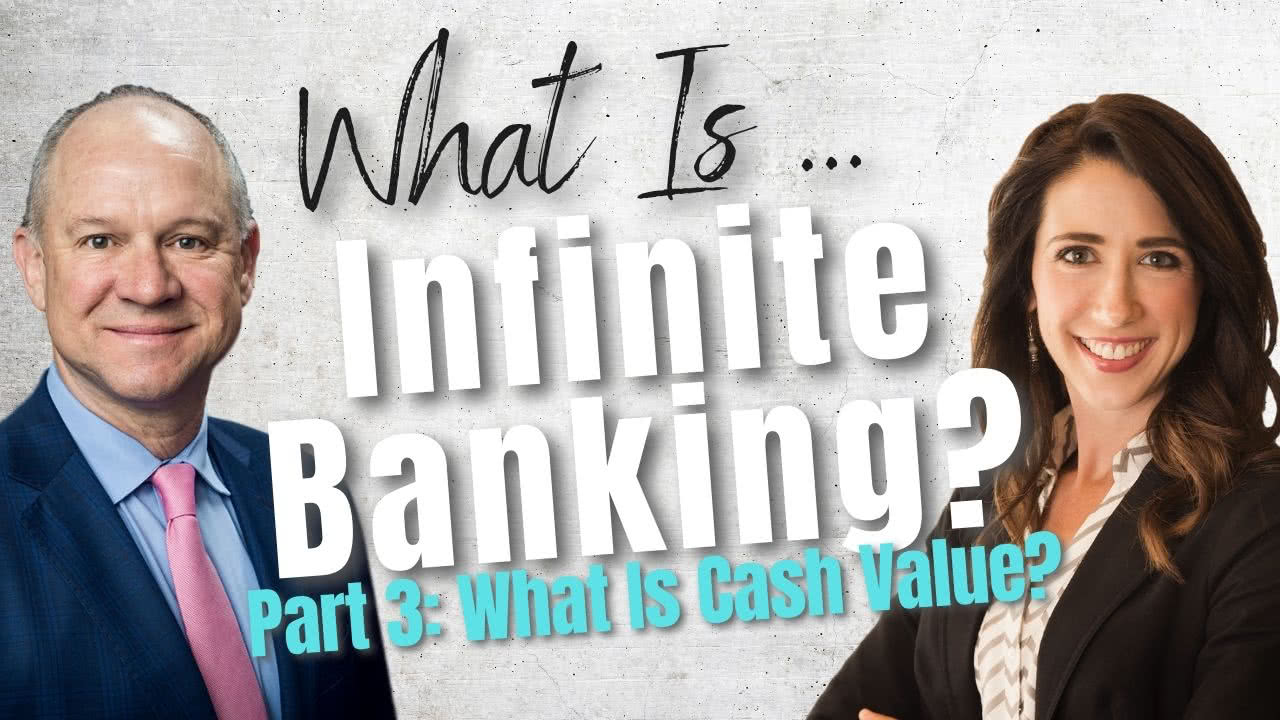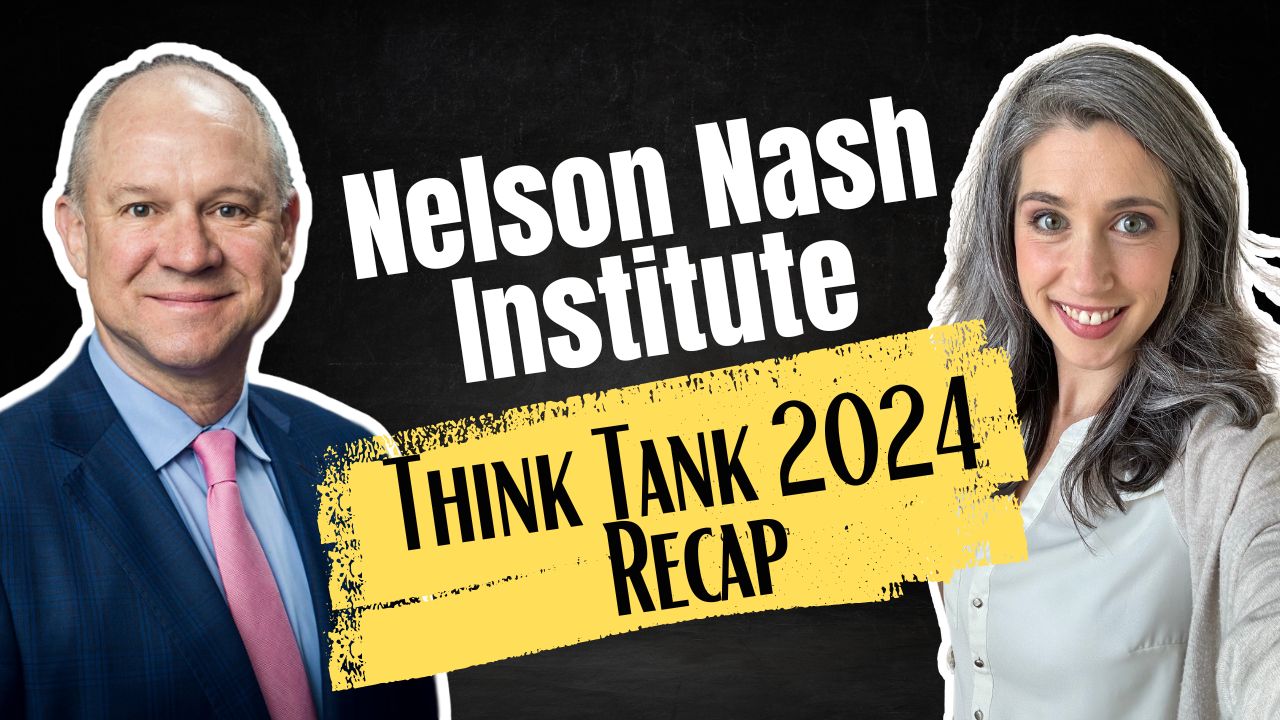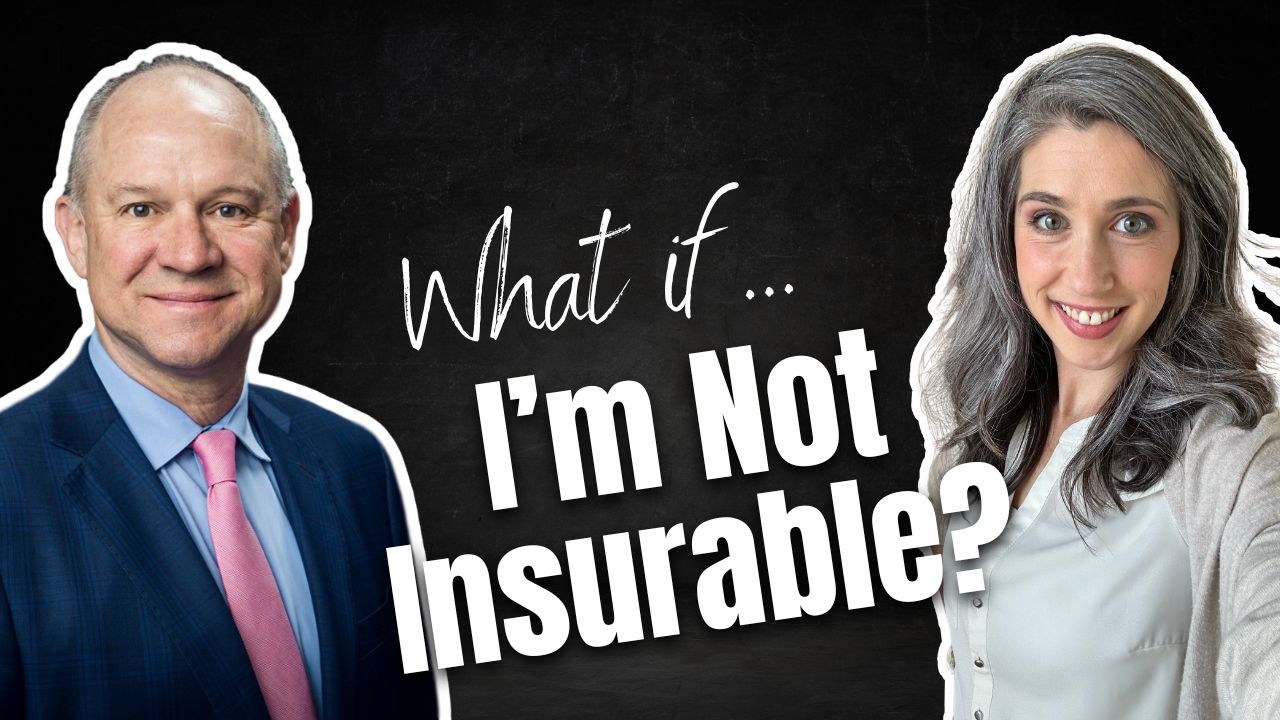
What is Infinite Banking? Part 3
Have you heard about Nelson Nash, Infinite Banking, Becoming Your Own Banker, Bank on Yourself, and want to learn more? Or maybe you’re already using Infinite Banking, but would like to be able to explain it better to your spouse, your parents, your children, business partner, or friends. We’re continuing our series on the basics of the Infinite Banking Concept and answering your “what” questions. Today, we’re unpacking: What is the Cash Value of Life Insurance?
So if you want to see how cash value works as a living benefit that enhances your life today … tune in now!
Podcast: Play in new window | Download (Duration: 56:23 — 64.5MB)
Subscribe: Apple Podcasts | Spotify | Android | Pandora | RSS | More
Table of contents
What is the Cash Value of Life Insurance?
What is the Cash Value of Life Insurance?
Cash value is the equity portion of your whole life insurance policy that you can access and use. It is a part of your death benefit, not separate, and you can access and use it during your lifetime.
Cash value accumulates in a few ways: premium payments, guaranteed interest, and non-guaranteed dividends.
How is Cash Value Related to Death Benefit?
Because cash value is like the equity of your death benefit, the value represents the accessible portion of your death benefit. As your policy matures, it rises to meet your death benefit. So your cash value is designed to equal your death benefit by the time it endows. The current endowment age is 120. Since endowment represents your ability to access the full value of your death benefit, the policy pays out to you and the contract is complete.
However, you’re still guaranteed to receive the full death benefit if you pass away at any point before endowment. That’s the power of a whole life insurance contract. But because the cash value is equity, not a separate account, the payout is not cash value + death benefit. You receive the full death benefit.
What is the Net Present Value of a Future Death Benefit?
The Net Present Value of your future death benefit is another way of describing the equity in your policy. The “net present value” is the current present amount of your cash value account, which is a portion of your future death benefit.
What Makes My Cash Value Grow?
Over time, your cash value grows as a product of your premiums, interest, and dividends. Your premium–the payment you make to keep your insurance in place–is the main source of cash value growth. However, insurance companies also guarantee that they will pay a certain amount of annual interest, as well as any company profits in the form of dividends.
The cost of the insurance itself affects the growth. For example, premium payments must first cover the cost of insurance. When you pay a premium, that money contributes to payroll, investments, and commissions. The remainder is what you have available in your cash value. Since the cash value is the net present value of a future death benefit and the risk to the company lessens with time. Think about it: the risk to the insurance company is greatest when you open a policy. There’s a chance, however small, that you only make one premium payment before you pass away. But because the policy is in force, the company must pay the full death benefit. Over time, you pay more and more into the policy, so the actual costs are decreasing and instead contribute more heavily to your cash value.
Another way to grow your cash value is through guaranteed interest. This is the dollar amount your policy is guaranteed to grow each year, as shown in an illustration. You also have non-guaranteed dividends, which are profits from the company. These profits can come from the company’s investments, as well as the interest paid to the company from policy loans. Any profits are distributed annually.
What is the Effect of Guaranteed Interest on My Policy?
The value of guaranteed interest is that you can be confident in what you will get, if not more. One strength of this guarantee is that any time your policy increases, you set a new floor that your policy cannot drop below. This means you can trust that your value can only increase.
The guaranteed interest is also often higher than a typical savings account. When you factor in potential dividends, the value of this steady growth is priceless. Another benefit of life insurance is that your money is private and secure, so you are not taxed on your interest accumulated on your life insurance cash-value.
Note: there is one way that your cash value can decrease, which is through withdrawal. Because of the structure of life insurance, there’s no way to “put back” money you withdraw. You can only continue to make premium payments and add new equity.
What is the Benefit of Having Cash Value?
Cash value creates opportunities when you use it as a savings vehicle and wealth warehouse. The life insurance policy loan provision allows you to leverage your cash value for anything you want. You can fund vacations, buy real estate, and so much more with cash value.
When you repay your loan, even partially, that repaid portion of the cash value becomes accessible again. This means you can grow and leverage large sums of money within your own personal banking system to fund anything you want. This can even create opportunities that a bank might not give you because you don’t need to create a proposal to get a policy loan. Your life insurance company will simply give you what you ask for if you have the cash value to support it.
During your policy loan, your cash value continues to accumulate interest and dividends on the full amount. This means that you don’t lose out on compounding interest if you want to use your money.
What Part of the Policy Can I Borrow Against?
When you want to take out a policy loan, you can borrow against your cash value. This is why Infinite Banking often prioritizes early cash value growth. Over time, as your cash value increases, your access to cash increases.
Policy loans work like a line of credit. As you pay down your loan balance, your access to your cash value replenishes. Additionally, your cash value grows even when you leverage it. It continues to earn interest and dividends, plus your premiums also increase your cash value floor. This means your capital increases over time, and your access replenishes as you pay back your loans.
Your cash value gives you the opportunity to recycle your dollars and give you the ability to leverage the same pool of money infinitely.
What Happens to My Death Benefit When I Take a Policy Loan?
When you take a policy loan, you leverage your cash value. However, your cash value is the accessible portion of your death benefit. This means that if you pass away with an outstanding loan, the death benefit is paid less the value of your policy loan. In short, your death benefit is only affected if you have outstanding loans at the time of your death. Otherwise, you can take loans and pay them back with no permanent impact on your death benefit.
What Happens to My Principal and Interest on a Policy Loan When the Loan is Repaid?
When you take a policy loan from your insurance company, you can pay that loan back on your own timetable. This gives policyholders lots of freedom. However, it can also stir up questions on how interest is applied. In short, interest is applied based on the time frame it takes to pay off the loan.
For example, say you borrow against your cash value to buy a property intending to rent it out. Your original goal is to pay the policy loan back like a mortgage, using the cash flow. Instead, you end up flipping the property nine months later. Now, you want to pay the loan back in a lump sum–how is that interest applied?
In this instance, you would have accumulated interest for the full nine months at whatever rate the company gave you when you took the loan. Policy loans are for one year at a time, and if a balance is still due at the end of the year, then it is renewed. Since the interest is charged up front for each year, the insurance company would credit you back for the 3 months remaining in the year you paid off the loan. In fact, each time you make a loan payment before the end of the year, you are credited back interest. So the faster you pay off the loan the less interest you are actually paying.
What If There Is An Interest Balance Leftover?
If, however, there’s a balance left over at the end of the year, you must pay the interest balance, or roll the remaining balance into a new loan for another year. If you do not pay it within a year, you will accumulate interest on your interest. The main point being that if you are paying down the loan balance the actual amount of interest will be less than the original loan interest charged, in addition to the interest your policy is accumulating. The guaranteed interest plus dividends earned means you are both paying interest and earning interest on the same money while using it to finance purchases. If you use this to finance investments then you are earning a return in two places at the same time, whereas if you pay cash you only get a return on the investment, but you then give up the ability to earn interest on that cash.
What Can I Do With My Dividends?
There are many ways to use your dividends. While many people choose to purchase Paid-Up Additions (PUAs), you can also take dividends in cash, apply them to future premiums, and more. If you’re looking to maximize your early cash value, PUAs are a great way to achieve this.
Book A Strategy Call
Do you want to coordinate your finances so that everything works together to improve your life today, accelerate time and money freedom, and leave the greatest legacy? We can help! Book an Introductory Call with our team today at https://themoneyadvantage.com/calendar/ and find out how Privatized Banking, alternative investments, or cash flow strategies can help you accomplish your goals better and faster. That being said, if you want to find out more about how Privatized Banking gives you the most safety, liquidity, and growth… plus boosts your investment returns, and guarantees a legacy, go to https://privatizedbankingsecrets.com/freeguide to learn more.
Nelson Nash’s Legacy: Think Tank 2024 Recap
Embark on a transformative financial odyssey with us as we reflect on our profound experiences at the Nelson Nash Think Tank for 2024. Unlock the doors to personal economic empowerment with the Infinite Banking Concept (IBC), a brainchild of the late Nelson Nash that revolutionizes the use of dividend-paying whole life insurance. We shed light…
Read MoreBecoming Your Own Banker, Part 25: Uninsurability Hacks
Do you want to use Infinite Banking, but you’re uninsurable? Today we are discussing uninsurability hacks! Don’t worry, uninsurability ISN’T a game-stopper for using Infinite Banking to build your own banking system. That means you can still reap the exponential reward of dividends and interest that grow with uninterrupted compounding, store liquid cash reserves that…
Read More


